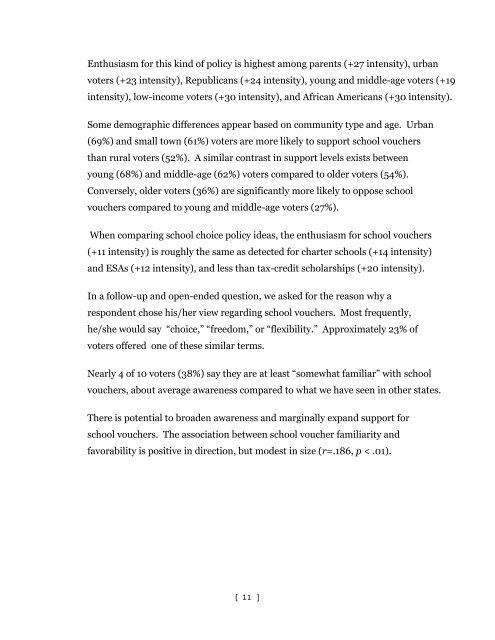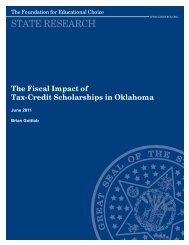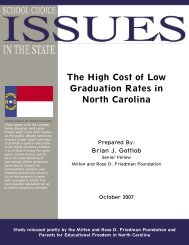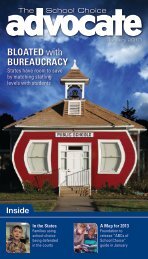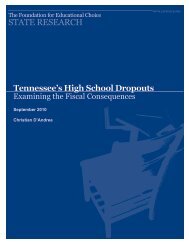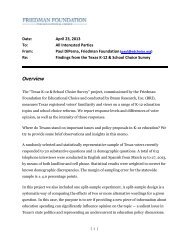Survey Memo - The Friedman Foundation For Educational Choice
Survey Memo - The Friedman Foundation For Educational Choice
Survey Memo - The Friedman Foundation For Educational Choice
You also want an ePaper? Increase the reach of your titles
YUMPU automatically turns print PDFs into web optimized ePapers that Google loves.
Enthusiasm for this kind of policy is highest among parents (+27 intensity), urban<br />
voters (+23 intensity), Republicans (+24 intensity), young and middle-age voters (+19<br />
intensity), low-income voters (+30 intensity), and African Americans (+30 intensity).<br />
Some demographic differences appear based on community type and age. Urban<br />
(69%) and small town (61%) voters are more likely to support school vouchers<br />
than rural voters (52%). A similar contrast in support levels exists between<br />
young (68%) and middle-age (62%) voters compared to older voters (54%).<br />
Conversely, older voters (36%) are significantly more likely to oppose school<br />
vouchers compared to young and middle-age voters (27%).<br />
When comparing school choice policy ideas, the enthusiasm for school vouchers<br />
(+11 intensity) is roughly the same as detected for charter schools (+14 intensity)<br />
and ESAs (+12 intensity), and less than tax-credit scholarships (+20 intensity).<br />
In a follow-up and open-ended question, we asked for the reason why a<br />
respondent chose his/her view regarding school vouchers. Most frequently,<br />
he/she would say “choice,” “freedom,” or “flexibility.” Approximately 23% of<br />
voters offered one of these similar terms.<br />
Nearly 4 of 10 voters (38%) say they are at least “somewhat familiar” with school<br />
vouchers, about average awareness compared to what we have seen in other states.<br />
<strong>The</strong>re is potential to broaden awareness and marginally expand support for<br />
school vouchers. <strong>The</strong> association between school voucher familiarity and<br />
favorability is positive in direction, but modest in size (r=.186, p < .01).<br />
[ 11 ]


